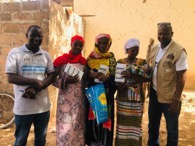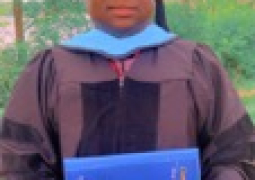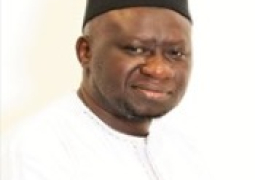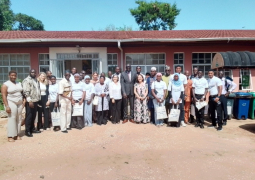
The project, sponsored by the World Bank and the Gambia government, is implemented by the National Nutrition Agency (NaNA), the Directorate of Social Welfare and the Department of Community Development.
In an interview held at Misera, Alieu Kujabi, programme manager at NaNA explained that over 56 households in Misera received each D3,000 for the round six. He added that the money given to them will go a long way in mitigating their poverty situation.
Mr Kujabi stated that some of the beneficiaries do invest and engage in business activities to improve their earnings.
“The cash transfer is conducted with health and nutrition education so that their capacities can be built on nutrition, education, gender-based violence, entrepreneurship and more,” he said.
Alhagie Jatta, regional community development officer for URR emphasised that the Nafa Cash Transfer is one of the best ways of helping poor households, noting that the support goes directly to the vulnerable.
“The cash will help them take care of their needs which include the sustainability of their three daily meals. After giving them the money, we do conduct monitoring to find out how the money is spent. Some of them use to buy food items, pay children's school fees and as well venture into business,” he said.
Speaking at Diabugu Batapha, Kebba Jatta, the Regional Social Welfare Officer explained that in URR, they rolled out cash to Wulli East, Kantora and Sandu. In Diabugu Batapha and Tenda, he said, they have about 138 beneficiaries. Jatta added that the SSNP is building household resilience and that the cash transfer is accompanied by Social and Behavioral Change Communication (SBCC).
“As a result of the SBCC, we have been seeing some beneficiaries venturing into small businesses, making savings, backyard gardening and more. Before the project, life was difficult with them but we have now seen an improvement with the beneficiaries,” he stated.
Gatta Cham, a beneficiary and a widow from Diagubu Batapha, thanked the government and the implementing partners for the initiative, saying the money has saved her from several difficulties.
“My husband died and left me with small children. To help my family, I bought a goat and I am optimistic that it will generate income. In the future, I think I will be able to take care of my family through the small ruminants and provide three square meals for my children,” he said.
Jakha Camara, a beneficiary who collected the cash on behalf of her wife, expressed delight. He said the money will be used to take good care of their children's needs.
“We received training on how to live with our families harmoniously and it has significantly helped us to tolerate each other and avoid anything that could cause confrontation in the family,” he added.
Beneficiaries Jonfolo Saho and Fattoumatta Conteh expressed similar sentiments and called on other donors to emulate the World Bank.




